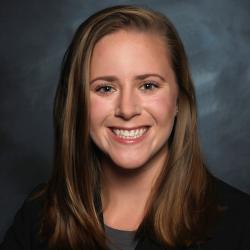A group of scientists and physicians at UC San Diego Health and the UCSD School of Medicine has arranged a partnership with five diagnostics markers that it says will bring the health system’s capacity to test for coronavirus to as many as 1,500 tests daily sometime in early April.
Amid a lack of available tests UC San Diego Health developed its own, but limits to the amount of materials and chemicals needed to perform the screenings kept daily capacity to about 20 tests, which the health system has been using for internal patients.
Since then, in a bid to make more tests available, the FDA has given emergency authorization to a number of companies to sell their own tests. Five diagnostics makers—Thermo Fisher Scientific (NYSE: TMO), Roche, GenMark Diagnostics (NASDAQ: GNMK), Luminex, and Abbott (NYSE: ABT)—have agreed to work with UCSD to ramp up its capacity to 1,000 to 1,500 completed tests per day, a level UCSD estimates it will reach within two to three weeks.
The tests, which are being performed at UCSD Center for Advanced Laboratory Medicine (CALM), a 90,000-square-foot facility near the university’s main campus in La Jolla, were among the first in the nation to produce results in hours, rather than days or weeks. The health system’s in-house COVID-19 testing started March 10.
“But emerging and widespread challenges across health systems and the nation involving shortages of required chemicals and materials has limited testing to only persons meeting strict diagnostic criteria, such as clear symptoms of disease or known exposure to the virus,” UCSD said in a statement Friday.
CALM director Ronald McLawhon said the facility has been revamped to redirect additional personnel and resources to COVID-19 testing. And the new partnerships will allow the health system to use multiple testing platforms, which have different material requirements and pull from distinct supply chains, to give it better chance of handing the need for coronavirus testing.
As of 4 p.m. Thursday a total of 89 San Diego County residents had tested positive for COVID-19 infection, 11 of whom had been hospitalized, according to the county’s tracker. But experts say the true total of positive cases is much higher.
“All of us continue to explore new ways to further increase testing capacity and to develop new diagnostic laboratory assays that can help guide care and therapy for COVID-19 patients,” said Steven Gonias, chief of pathology services for UC San Diego Health and chair of the Department of Pathology at UC San Diego School of Medicine. “This outbreak isn’t over; neither is our work.”

